I'd like to share the story of Iwuchukwu Amara Tochi, a young Nigerian footballer.
In 2007, at the age of 21, Tochi was hanged in #Singapore.
In 2007, at the age of 21, Tochi was hanged in #Singapore.
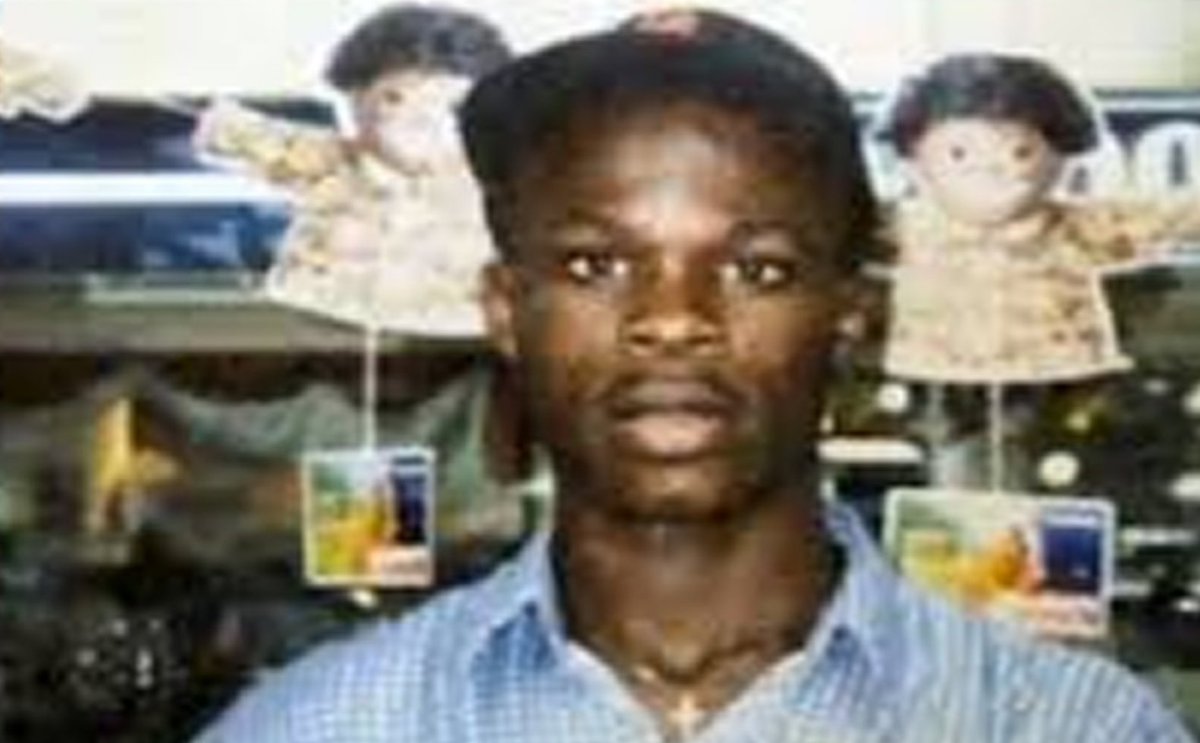
Tochi was arrested in Changi Airport in #Singapore on 27 November 2004. He was 18 years old.
He was later charged with importing not less than 727.02g of heroin. His case largely revolved around whether he could rebut the presumption clauses within the Misuse of Drugs Act.
He was later charged with importing not less than 727.02g of heroin. His case largely revolved around whether he could rebut the presumption clauses within the Misuse of Drugs Act.
What are these presumption clauses? First: if you have more than 2g of heroin, Section 17 of #Singapore's Misuse of Drugs Act (here: sso.agc.gov.sg/Act/MDA1973#pr…) presumes that you are trafficking the drugs. 
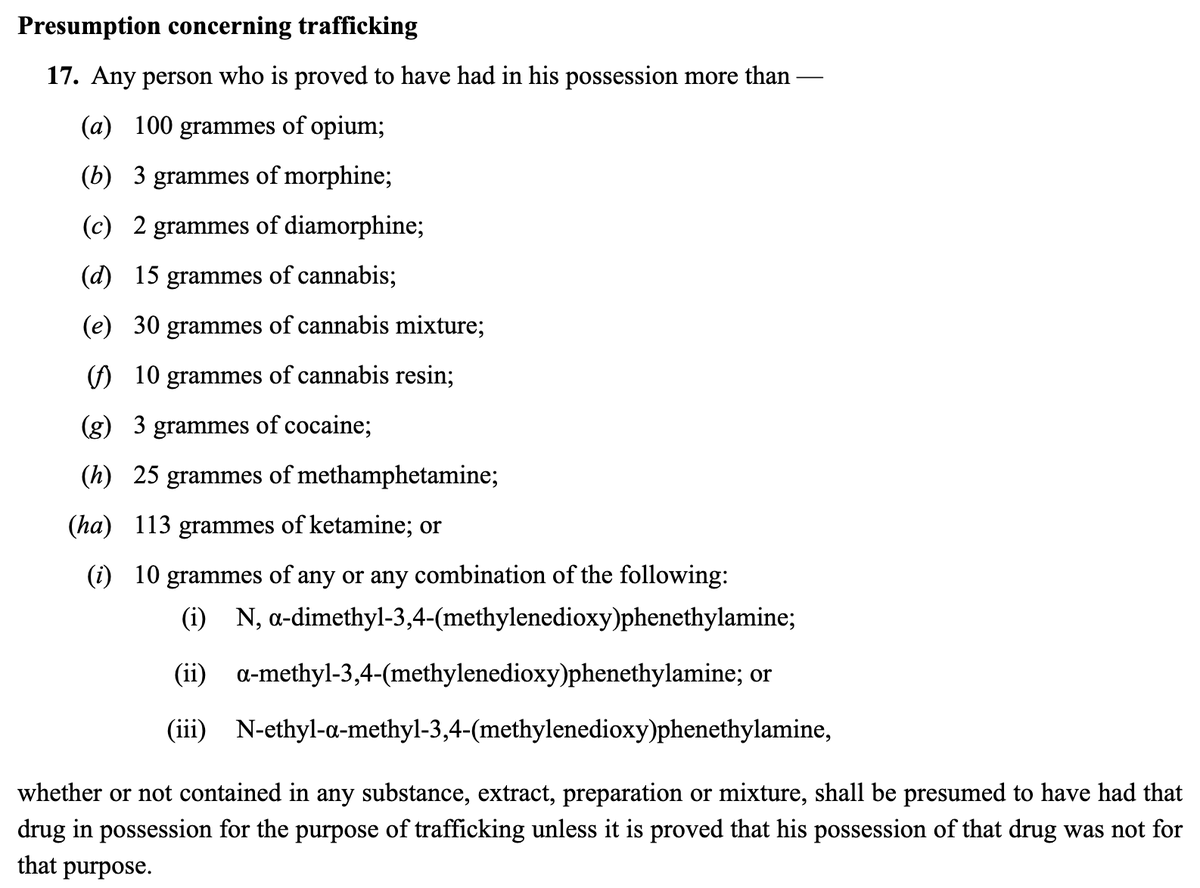
Second: Section 18 of the Misuse of Drugs Act states that if you're found in possession or custody of anything containing a controlled drug (like heroin), you're presumed to have known the nature of the drug. 
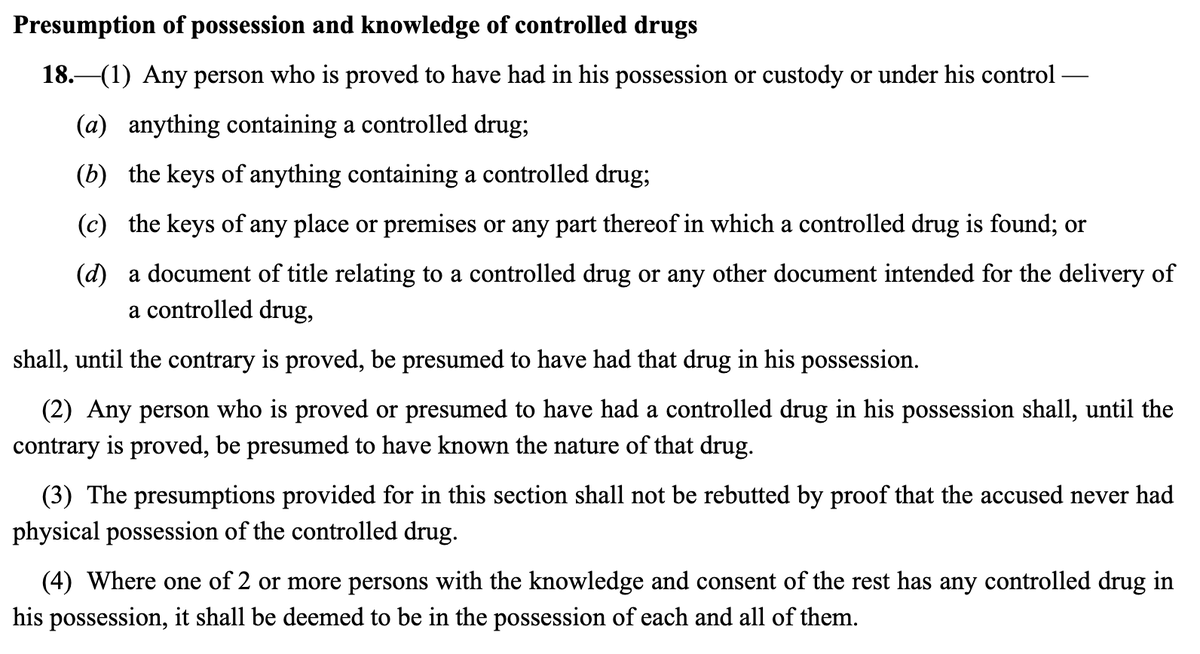
What this meant for Tochi: having >2g of heroin on him meant the law already presumed that he was trafficking. In his defence, he tried to rebut the presumption in Section 18 by arguing that he *did not* know that what he was carrying was heroin. 

But let's back up first, and take a look at who Tochi was. He was arrested in Changi Airport at age 18. He'd left school when he was 14, and played football in #Nigeria and #Senegal. After returning home from Senegal, he wanted to go play in #Dubai.
Tochi travelled to #Pakistan, hoping to go to #Dubai from there, but ended up getting stranded. There, he met a man named Smith, who offered to help him. But even with Smith's help, he wasn't able to enter Dubai. So Smith offered to help him get to #Singapore instead.
Although he had no arrangements with any football clubs in #Singapore, Tochi hoped that once he arrived, he could approach the football federation for help, and that he could get trials with the clubs and hopefully play here.
Smith, in helping Tochi get to #Singapore, asked him to deliver something to a sick friend, Marshall, who would fly from #Indonesia and meet him in the transit area of Changi Airport. Marshall would give him money; in police statements, the amount was written down as US$2,000.
Tochi arrived in #Singapore and went to Terminal 2 of Changi Airport, but didn't find Marshall. When he called Smith, he was told that Marshall had missed his flight, and that he should check into the transit hotel to wait.
Tochi tried to check into the transit hotel. When a room became available, the hotel supervisor realised he'd already been in the transit area >24hrs, and was supposed to return to #Dubai 3 days later. She called the airport police, as per procedure. Tochi waited. 

When his bags were searched, the police found the capsules that Smith had given to Tochi for Marshall. At first he said they were chocolate, but later said they were herbs. He even swallowed a capsule to show them — and had to be sent to hospital to get the capsule purged. 

At trial, his defence counsel argued that Tochi hadn't known he was carrying heroin. Why would he have swallowed a capsule (containing a potentially lethal amount of heroin) if he knew? Why did he wait for the airport police to arrive w/o trying to hide/dispose of the capsules? 

In the High Court judgment, the judge agreed that there was no direct evidence that Tochi knew that the capsules were heroin.
But remember the presumption clause: it's not for the prosecution to prove that he knew. It's for Tochi to prove that he didn't know.
But remember the presumption clause: it's not for the prosecution to prove that he knew. It's for Tochi to prove that he didn't know.

The judge reasoned that because Tochi had been offered a rather large sum of money to deliver things to Marshall, he should have suspected that it was something dodgy, and should have asked more questions, or checked the capsules himself. 
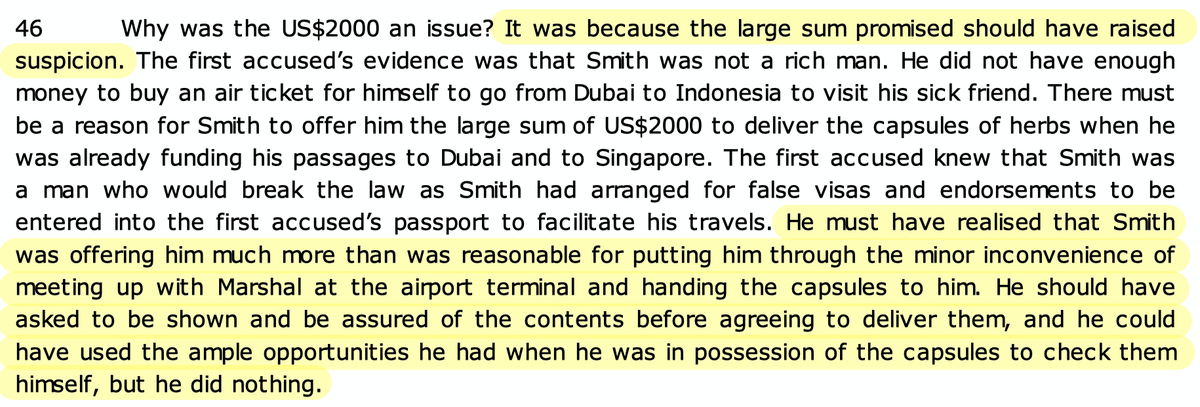
The judge was also not persuaded by Tochi's young age. He said that since Tochi left school at 14 and played football professionally, he was "not a simple sheltered boy fresh out of his village" and was "rich in life experiences for someone of 18 years." 

On this basis, the judge found that he'd been wilfully blind, and that even if he really hadn't known the capsules were heroin, ignorance was not a defence because he should have suspected something was up, and should have checked.
Tochi was given the mandatory #deathpenalty.
Tochi was given the mandatory #deathpenalty.

In 2006, the Court of Appeal upheld Tochi's conviction and sentence. President S.R. Nathan denied his plea for clemency.
An independent @UN expert called on #Singapore not to execute Tochi, emphasising that one should be innocent until proven guilty: news.un.org/en/story/2007/…
An independent @UN expert called on #Singapore not to execute Tochi, emphasising that one should be innocent until proven guilty: news.un.org/en/story/2007/…

Olesegun Obasanjo, then the Nigerian president, appealed to Prime Minister @leehsienloong for Tochi's life to be spared. Lee refused, citing "a duty to safeguard the interests of Singaporeans". smh.com.au/world/young-to… 

Tochi, aged 21, was hanged in Changi Prison on 26 January 2007. Also executed on that day was Okele Nelson Malachy (a.k.a. Marshall, the man he was to have delivered the capsules to).
"How small the coffin was!" a friend recently remarked as she recalled his funeral. #RIP
"How small the coffin was!" a friend recently remarked as she recalled his funeral. #RIP
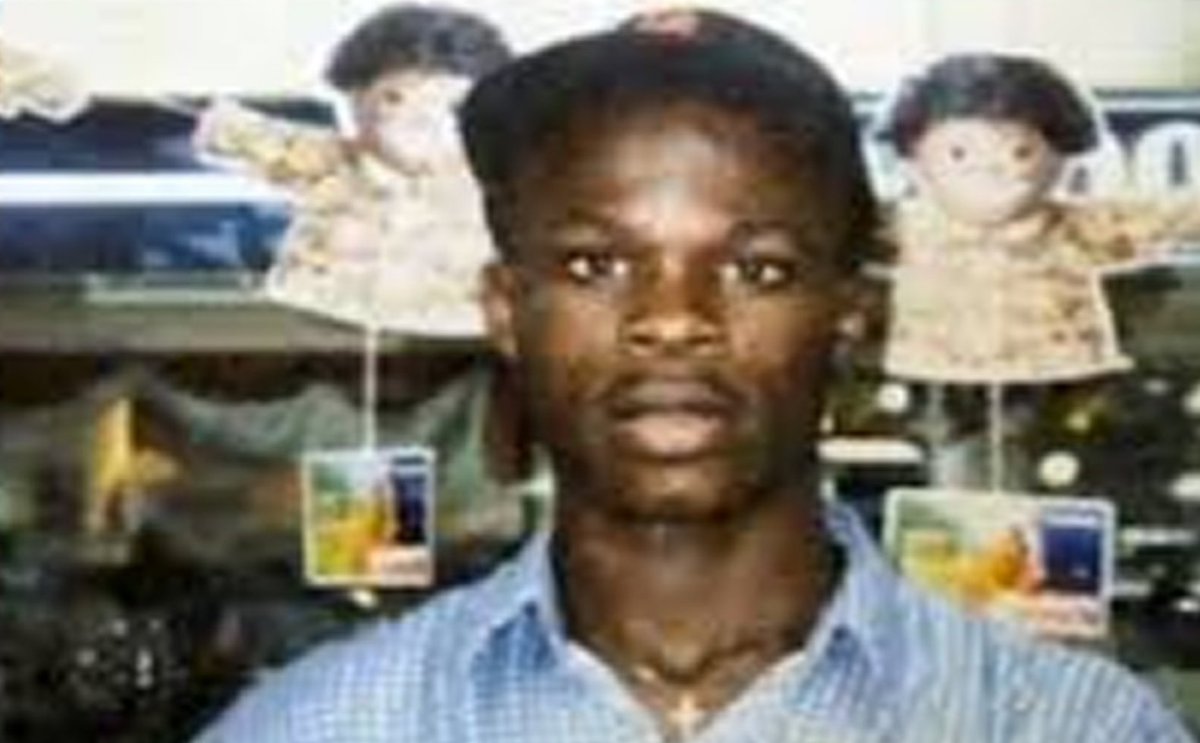
You can read the High Court judgment I've used as the main source for this thread here: supremecourt.gov.sg/docs/default-s…
If you're a Singaporean and would like to express your support for the abolition of the #deathpenalty, please sign and share this petition: change.org/p/president-ha…
Added today: Rozman bin Jusoh's story
https://twitter.com/kixes/status/1309386289293258752?s=20
• • •
Missing some Tweet in this thread? You can try to
force a refresh







